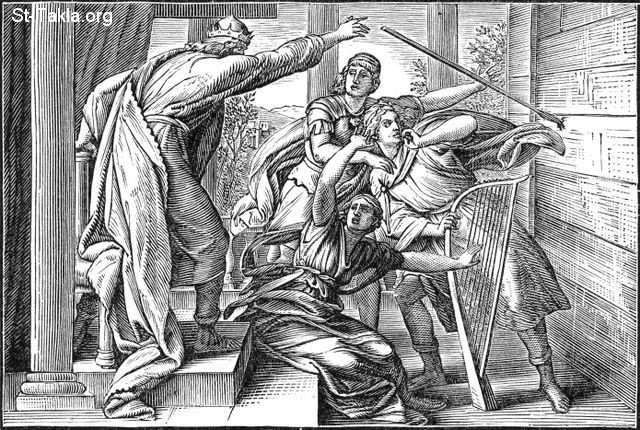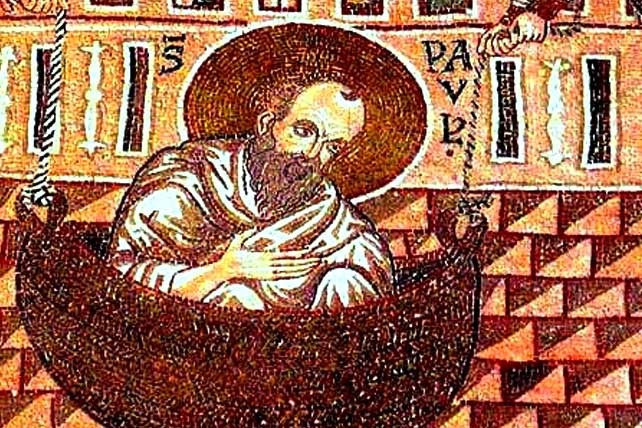In the summers of my childhood, I’d often escape doing household chores by vanishing like a phantom into thin air. The trick was to crack open my bedroom window, pop the fly screen and take the six foot leap down to freedom, without twisting an ankle or ending up with crutches.
I waved farewell to my mother’s pleas to resurrect my brother’s skateboard (an impossibility since I broke it. Sorry, bro.), wash dishes, hang out laundry, peel off fossilized stickers, and other mundane duties.
My window of opportunity allowed me to join in the fun with all the neighbourhood kids. We’d build cubby houses, ride our bikes, run barefoot through sprinklers and play sport in the sunshine. We didn’t have the allure of Xboxes and Playstations back then.
Ironically, the very thing that was the portal to my freedom was also the thing that invited the most fear.
When darkness settled, and I was alone again in my room, my overactive imagination would take flight. I’d curl under the covers with a heightened sense of awareness of every twig that snapped and every tom cat that crooned for his mate. Sometimes, I’d mistake a cat on heat for a baby crying outside my window.
I kept a metal pole (from the supporting frame of our volleyball net stand) under my bed, just in case an intruder broke through my window. In the event of a home invasion, I could at least get a few whacks in.
King Saul and the plight of David
When King Saul was in his quarters, he always kept a pole within reach. According to ancient custom, this javelin also served as his royal scepter—a symbol of his royal authority.
The captain of King Saul’s personal bodyguards was David, son of Jesse. He ascended from obscure beginnings as a shepherd boy, to renowned giant slayer, then onto an esteemed position in the royal household. Personal bodyguards belonged to the King’s inner circle and charged with his personal welfare and comfort.
King Saul suffered from bouts of mental instability, irrational behavior and paranoia. As a skilled musician, David played his lyre to soothe the King during his bouts of mania. Somedays though, David’s musical abilities were not enough.
***
The King hurled his javelin in disgust. It narrowly missed David’s shoulder. The weapon’s pointed tip scraped down the wall, before hitting the ground with a clang that reverberated through the palace. This wasn’t the first time David had sidestepped the King’s raging spear.
Clutching his lyre against his chest, David escaped from the King’s presence with the speed and cunning of a leopard.
Failing to kill him with his own hand, the King ordered trained assassins to track his son-in-law down. They surrounded David’s house and lay in wait for the perfect moment to strike. It was a game of quiet patience.
They would slay him when he least suspected it—while he was asleep in the comfort of his own bed.
Sensing her father’s anger and evil intentions toward her husband, Michal (David’s first wife) pleaded with David to flee for his life. He would be dead by morning if he didn’t make haste.
So Michal let David down through a window: and he went, and fled, and escaped. I Sam 19:12

David’s window of opportunity
God was protecting the next king that He had handpicked to succeed King Saul. Why was David’s life so precious? Because it was through David’s lineage that the Messiah would come.
Behold, the days come, saith the LORD, that I will raise unto David a righteous Branch, and a King shall reign and prosper, and shall execute judgement and justice in the earth.
In his days Judah shall be saved, and Israel shall dwell safely: and this is his name whereby he shall be called, THE LORD OUR RIGHTEOUSNESS. Jeremiah 23:5,6
God designed a miraculous sign specifically to the house of David. The sign we celebrate at every Christmas—God incarnate as a gift from heaven—a baby born to a virgin. God with us.
And he said, Hear ye now, O house of David . . . Behold, a virgin shall conceive, and bear a son, and shall call his name Immanuel. Isaiah 7:14
And God fulfilled his promise. Jesus Christ our saviour was born.
Many years later, a religious leader would arise to persecute, imprison and butcher anyone professing the name of this Messiah. Only an extraordinary encounter with the King of kings and Lord of lords transformed this man’s calloused heart.
The plight of Saul of Tarsus, later known as Paul
Paul was a well-educated and sincere Pharisee, and highly acclaimed in Jewish circles before his conversion to The Way.
Three years after Paul’s dramatic conversion, Paul preached boldly in Damascus in the name of Jesus. To the Jewish leaders, Paul was a traitor, a turncoat, for he had once been their most effective persecutor against the Christians.
Now, Paul’s Jewish opponents plotted to assassinate him with the cooperation of the high officials in Damascus, backed by King Aretas IV of Arabia himself.
By day and night, the Jews kept a vigilant watch over the city gates for any sign of Paul’s movements. News of their scheme eventually reached Paul’s ears. Answering God’s call meant that Paul’s life would always be in danger.
The house he was staying in was nestled in the city walls. His fellow Christians helped him execute a clever escape plan. However, he’d have to swallow his pride.
Paul sunk to a new depth of humiliation as he climbed into a large fish basket secured by ropes. The stench of stale fish rubbed against his skin and clothes. Carefully, the disciples hoisted him out of the window and down the wall.
Then the disciples took him by night, and let him down by the wall in a basket Acts 9:25
On the ground, Paul had to navigate in the shadows. He hid amongst bushes and trees to remain out of sight from the guards posted by the city gates.

Paul’s window of opportunity
He was a fugitive, but God granted him a great window of opportunity to advance the name of Christ.
God’s purpose was to use Paul to preach the gospel to the Jews and to be a missionary to the Gentile nations.
Delivering thee from the people, and from the Gentiles, unto who I now send thee,
To open their eyes, and to turn them from darkness to light, and from the power of Satan unto God, that they may receive forgiveness of sins, and inheritance among them which are sanctified by faith that is in me. Acts 26:17-18
God used Paul to give sight to the spiritually blind, to steer them from following false and blind guides and direct toward the truth, the light of the gospel.
Jews and Gentiles alike were able to receive God’s forgiveness, to have every guilty stain washed away, to become heirs of Christ, to have heaven as their home, and to be set apart to serve him.
Paul answered God’s call and continued to preach in every city that the Lord had directed him to go. One place was to minister to a small church in Troas.
It was Saturday evening, and the believers were shoulder to shoulder in the upper room of a house to worship and break bread. Paul was in the middle of giving them a farewell sermon.
He didn’t know when he would ever see these disciples again. He’d be on board a ship the following morning, so he taught them as much as he could in the hours he had left.
The plight of Eutychus
It was stuffy on the third floor, the heat from jammed up bodies and smoky oil lamps added to Eutychus’ drowsiness. It was now midnight and Paul continued with his exceptionally long sermon. Eutychus masked a yawn with a palm over his mouth.
Eutychus tried to pay attention to what Paul was saying, but his eyelids grew heavier and heavier. He moved to window and sat on the sill for some cool air. As he listened to the preacher, his head nodded involuntarily as he fought to keep his eyes open.
All other eyes were fixed on Paul.
Suddenly, there was the sound of mighty crash.
And there sat in a window a certain young man named Eutychus, being fallen into a deep sleep: and Paul was long preaching, he sunk down with sleep, and fell down from the third loft, and was taken up dead. Acts 20:9
Eutychus’ Window of Opportunity
What’s to be learned from this disaster?
(Perhaps it’s a friendly warning to preachers to keep their messages short and crisp. Some people would rather plummet to their death than listen to an overdrawn sermon.)
I believe a plain and simple reading of the text tells us that God gave Paul the apostolic gift of healing. When it was needed, a young man had his life restored.
What would’ve been remembered as a tragic incident was turned to one of triumph—and God was magnified. Our Lord can bring the dead back to life.
I’m reminded of how deep the Father’s love is for us. Every day God brings the spiritually dead to life. Life that is in his Son—the Lord of life. And we can take part in bringing others to know Him.
So let’s be on the lookout for all of God’s windows of opportunity.
Bibliography
Henry, M. 1961, Commentary on the Whole Bible, Zondervan, Michigan.
Pfeiffer C,F. 1990, The Wycliffe Bible Commentary, Moody Publishers, Illinois.
Pollock, J. 2012, The Apostle, The life of Paul, David C Cook, Colorado Springs, USA.
The Quest Study Bible, 1994, Zondervan Publishing House, Michigan.
Walton, J. 2000, The IVP Bible Background Commentary Old Testament, IVP Academic, Illinois.
Keener, C.1993, The IVP Bible Background Commentary New Testament, IVP Academic, Illinois.



Being Samoan, I relate to Eutychus sometimes. Thankfully, I only get a slap in the back of the head and not falling to me death lol. Another amazing post, Miss! I learned a lot of things that I didn’t know before hand and will definitely be keeping an eye out for God’s windows of opportunity for me 🙂
Can’t wait for the next one, Miss!
LOL Melody. I can relate too. I however, would get a nudge on the arm a subtle pinch, just enough to keep me focused on the sermon. Thanks for your support, Mel.
I think we all relate to Eutychus in a way. Like, I remember trying to stay awake during the Christmas and Easter sermons as a kid, because it would just draggggg on.
But it is sooo good to know that we can look to God, and also that God has a plan for us and will look after us.
Can’t wait for the next one Miss!